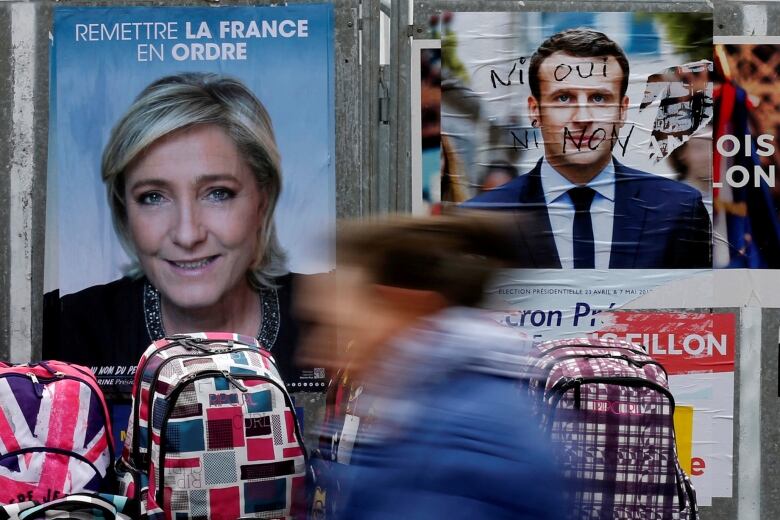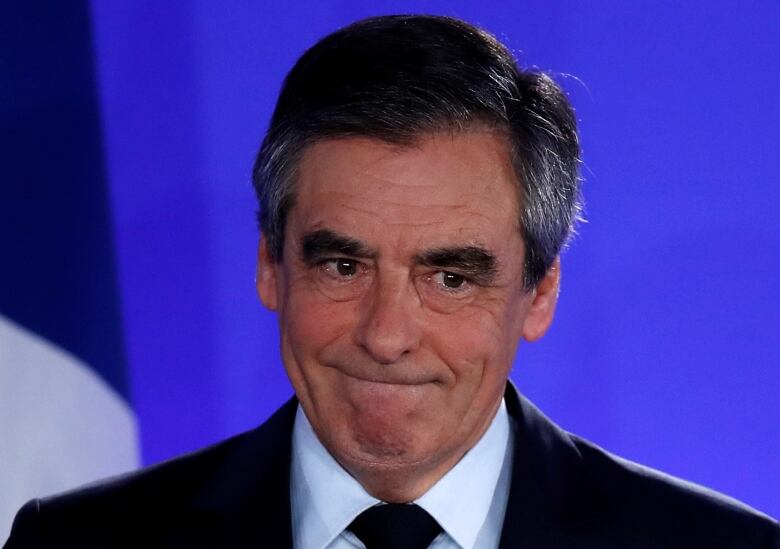French voters choose change but what type?
Centrist Macron to meet far-right leader Le Pen in presidential run-off

Ever the contrarian, a deeply divided France has shown a clear consensus for change and highly contradictory hopes for the future.
In a historic departure from 30 years of alternating between the country's traditional parties on the left and right, the French have voted the old outand inexperience in.
After a fraught, months-long campaign that saw a swell in support on the extremes of the political spectrum, the French electorate opted Sunday to pit pro-EU centrist Emmanuel Macron against Marine Le Pen's National Front (FN).
They will face off in the presidential election run-off on May 7.
Macron's movement En Marche! roughly meaning "On the Move!" is barely a year old, and Macron himself has never been elected to office though he was minister of the economy in President Franois Hollande's government for close to a year and a half.
- Le Pen, Macron to contest French election in 2nd round
- ANALYSIS l Angry, tired voters flirt with outsiders for president
- France's presidential candidates
As for the National Front, despite its longevity on the political landscape and several municipal strongholds, it has only ever been in opposition and currently has justtwo seats in the National Assembly.
In short, neither has much experience governing.
Sense of betrayal
Reckless, perhaps. But the outcome is largely the result of a resonating sense of betrayal and a feeling that the French aredone with traditional politicians and their broken promises.
"As a country, France doesn't expect much from the politicians," said author and political analyst Claude Askolovitch, explaining pre-election tensions. "Because we've seen them. We've seen enough of them."

A flagging economy and a double-digit unemployment rate which is almost twice as highamong youth go a long way to informing the disenchantment.
So do successive violent attacks on the country, ever-present security concerns, tensions with French Muslims, the conflict over the migrant crisis and the country's place within the EU.
The list is perhaps as long as public disappointment is deep.
But Sunday night, it was the old guard politicians who were devastated.
Anointing the neophyte
Socialist Party candidate Benot Hamon was the first to declare defeat after winning a meagre six per cent of the vote. Franois Fillon, the candidate for the centre-right party Les Rpublicains, was the next to bid farewell.
Fillon was seen early in the campaign as the likely victor, but his campaign was marred by scandal and, eventually, criminal charges for embezzlement. Still, polls kept him a close third, and he managed to prove them right.

It was a victory of sortsbut not good enough for this contest, which has long been about who could beat Le Pen.
Proof of that came again Sunday night as both Hamon and Fillon, the candidates for the traditional left and right, threw their support to Macron.
"I make a clear distinction between a political opponent and an enemy of the Republic," Hamon said, referring to Macron first and Le Pen second. "The time is dire and the fight must continue."

Fillon was starker in his declaration: "There is no choice but to vote against the far right."
French Prime Minister Bernard Cazeneuve echoed the sentiment, and on Monday, Hollande followed suit, saying he'd be votingforMacron because "he defends the values that willallowthe French to come together."
The slew of endorsements almost anointed the neophytewhile his slim lead over Le Pen led to a rise in the euro on Monday morning.
Kiss of death
None of this, of course, means the path is clear for Macron.
A new, 12-day campaign has already begun, and one look at Sunday night's electoral map shows a country almost split down the middle.
Macron has cast himself as the candidate of hope, la Barack Obama or Justin Trudeau, and one open to the EU and free trade.

But to many, Le Pen's promise to tighten borders and protect French entitlements, especially against the ravages of a free market economy, is the country's only hope.
Polls taken in France before and after Sunday night's results suggest Macron could trump Le Pen in the second round, with more than 60 per cent of votes. And, for what it's worth, polling broke its recent bad streak and actually got the results of the first round right.
The endorsements from theold guardcould, indeed, bridge the gap for Macron, but given Sunday night's rejection ofthem, they could also be a kiss of death.

Corrections
- A previous version of this story mistakenly said the National Front has never held a seat nationally. In fact, it won 35 seats in the 1986 legislative election and currently holds two.Apr 24, 2017 1:54 PM ET












_(720p).jpg)


 OFFICIAL HD MUSIC VIDEO.jpg)
.jpg)



























































































